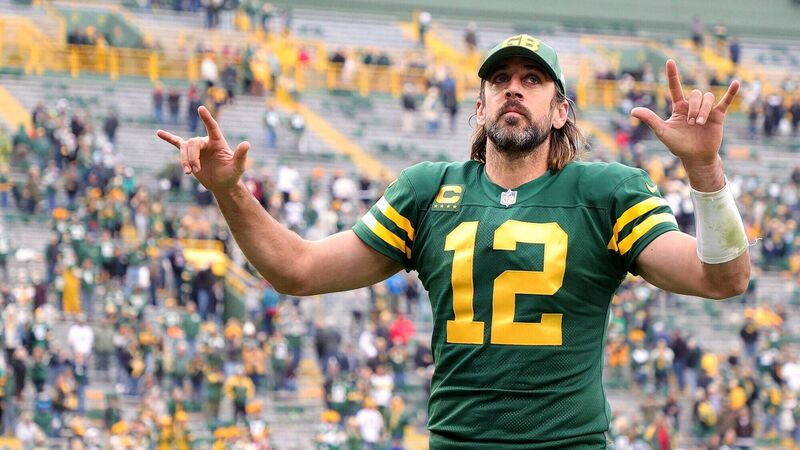John Riordan: NFL star Aaron Rodgers finds new ways to undermine pandemic battle

Green Bay Packers’ Aaron Rodgers celebrates after beating the Washington Football Team 24-10 in the game at Lambeau Field. The quarter-back tested positive for Covid after he previously stated he was ‘immunised’ though it was discovered that he had not been vaccinated against the virus.
Last weekend, not far west of Washington DC, a local icon and a larger-than-life NFL Hall of Famer passed away at the age of 87.









